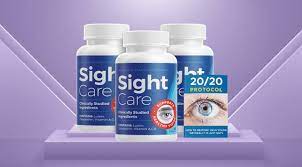In an era where screens dominate our daily lives and Sightcare review environmental factors pose continuous challenges to eye health, the importance of proactive vision care cannot be overstated. Sightcare, a comprehensive approach to eye health and vision enhancement, encompasses a range of practices, technologies, and preventive measures aimed at preserving and optimizing eyesight. This article delves into the significance of Sightcare and explores its various facets in promoting healthy vision.
Understanding Sightcare: Sightcare goes beyond mere correction of vision problems; it embodies a holistic approach to eye health. It encompasses preventive measures, regular check-ups, lifestyle adjustments, and advanced treatments tailored to individual needs. The core philosophy of Sightcare revolves around early detection of eye conditions, proactive intervention, and education to empower individuals to take charge of their eye health.
Preventive Measures: One of the fundamental aspects of Sightcare is the emphasis on preventive measures. Regular eye examinations, conducted by qualified optometrists, play a pivotal role in detecting potential issues at their nascent stages. These examinations evaluate visual acuity, assess eye health, and screen for conditions such as glaucoma, cataracts, and macular degeneration. By identifying problems early on, Sightcare enables timely intervention, minimizing the risk of complications and preserving vision.
Lifestyle Modifications: In addition to regular check-ups, Sightcare advocates for lifestyle modifications to safeguard eye health. Simple practices such as maintaining a balanced diet rich in vitamins and antioxidants, staying hydrated, and protecting the eyes from harmful UV rays and blue light exposure can significantly reduce the risk of vision problems. Moreover, adopting ergonomic work setups, practicing the 20-20-20 rule (taking a 20-second break every 20 minutes to look at something 20 feet away), and limiting screen time can alleviate digital eye strain and prevent long-term damage.
Technological Advancements: Sightcare leverages cutting-edge technologies to enhance diagnostic accuracy, treatment outcomes, and overall patient experience. From advanced imaging techniques for early disease detection to innovative vision correction options like laser eye surgery and specialized contact lenses, technology plays a crucial role in optimizing visual outcomes. Furthermore, developments in telemedicine enable remote consultations and monitoring, making eye care more accessible and convenient for individuals, particularly in underserved areas.
Education and Awareness: Central to the effectiveness of Sightcare is education and awareness initiatives aimed at empowering individuals with knowledge about maintaining eye health. Educational campaigns, workshops, and online resources educate the public about the importance of regular eye examinations, risk factors for various eye conditions, and preventive measures. By fostering a culture of proactive eye care, Sightcare strives to minimize the burden of preventable vision impairment and promote lifelong ocular wellness.
Conclusion: Sightcare represents a proactive and comprehensive approach to preserving and optimizing vision in an increasingly digital and visually demanding world. By emphasizing preventive measures, lifestyle modifications, leveraging technological advancements, and promoting education and awareness, Sightcare aims to empower individuals to prioritize their eye health. Incorporating Sightcare principles into daily life can lead to better visual outcomes, enhanced quality of life, and a brighter future for ocular health and wellness.

